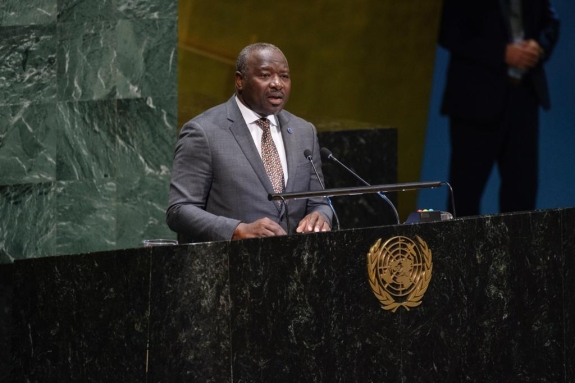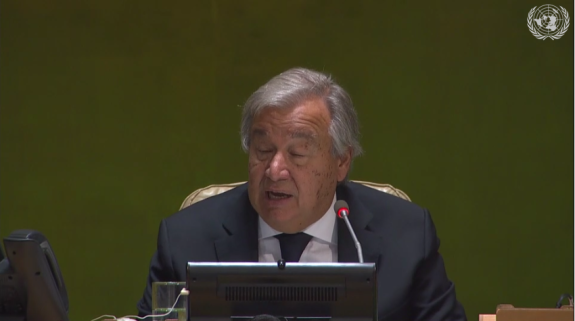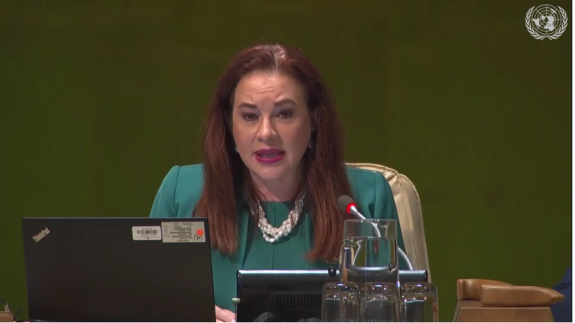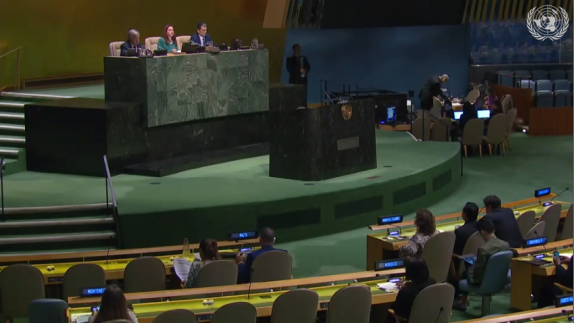Urgent calls for CTBT Entry Into Force at United Nations General Assembly High-Level Meeting
Urgent calls for the CTBT to enter into force resounded at a United Nations General Assembly High-Level Meeting on 9 September 2019, held to mark the recent tenth International Day against Nuclear Tests (IDANT).
In his keynote speech (PDF) , CTBTO Executive Secretary Lassina Zerbo noted that IDANT provides an opportunity to send a clear and unmistakable message to the international community that our work is not yet done.
“The business of ending nuclear tests for all time remains unfinished,” Zerbo said. “It is my hope that today’s commemoration will help to inspire countries to take concrete measures that will allow us to finally reach our objective of a world free from the dangers of nuclear testing. And the only path that will lead us to this noble goal is through the verifiability of the CTBT and its universalization.”
Zerbo commended the courage and leadership of Kazakhstan’s First President Nursultan Nazarbayev, who made the historic decision to renounce the possession of nuclear arms, send former Soviet nuclear warheads in Kazakhstan to Russia, and permanently close the Semipalatinsk nuclear test site. He also paid tribute to the bravery and determination of the people of Kazakhstan—scientists, civil servants, artists and ordinary citizens – who were affected by the nearly 500 nuclear tests carried out at Semipalatinsk, and who played an important role in the closing of the test site.
The CTBT is a crucial, and long overdue, step that will help to ensure the continued vitality of the international nuclear non-proliferation and disarmament regime. If we work together, I am confident we can achieve this noble aim. Let us mark this International Day against Nuclear Tests by strengthening our commitment to put an end to nuclear tests.
The High-Level Meeting at the General Assembly followed IDANT events around the world on 29 August, the official International Day against Nuclear Tests. The date of IDANT is highly symbolic, commemorating both the anniversary of Kazakhstan’s closure of the former Soviet Semipalatinsk nuclear test site in 1991, and the date the first Soviet nuclear test was conducted there in 1949.
In his opening remarks to the High-Level Meeting, UN Secretary-General António Guterres noted that the CTBT is one of the most widely supported treaties and that its verification mechanism—the International Monitoring System—has helped facilitate peace and security. He urged the eight states whose ratification of the Treaty is still required for it to come into force to do so urgently.
“In the 21st century, nuclear testing is simply not acceptable,” Guterres said, pointing to its grave human and environmental impacts. “And it is not acceptable to prevent the entry into force of the CTBT and, thereby, withhold a valuable restraint on the qualitative and quantitative proliferation of nuclear weapons and a practical step towards their total elimination.”
I want to use this opportunity to once again call upon all States to sign and ratify the CTBT without further delay, and for those remaining eight States to do so with a sense of urgency. In the 21st century, nuclear testing is simply not acceptable.
Today, we honour the memory of all victims of nuclear tests and pay our respects to those whose lives have been adversely affected. We owe it to them, and to generations unborn, not to repeat the horror of nuclear tests and nuclear weapon explosions.
Resources
- Statement by Dr Lassina Zerbo (
PDF
)
High-Level Meeting of the General Assembly to Commemorate and Promote the International Day against Nuclear Tests
- Statement by United Nations Secretary General, António Guterres
- Statement by President of the 73rd session of the UN General Assembly, María Fernanda Espinosa Garcés
10 Sep 2019
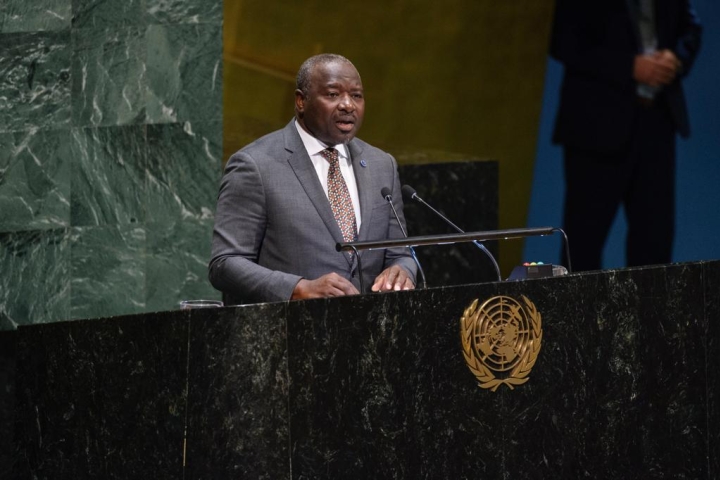
CTBTO Executive Secretary Lassina Zerbo addresses the UN General Assembly

United Nations Secretary-General António Guterres addresses the UN General Assembly
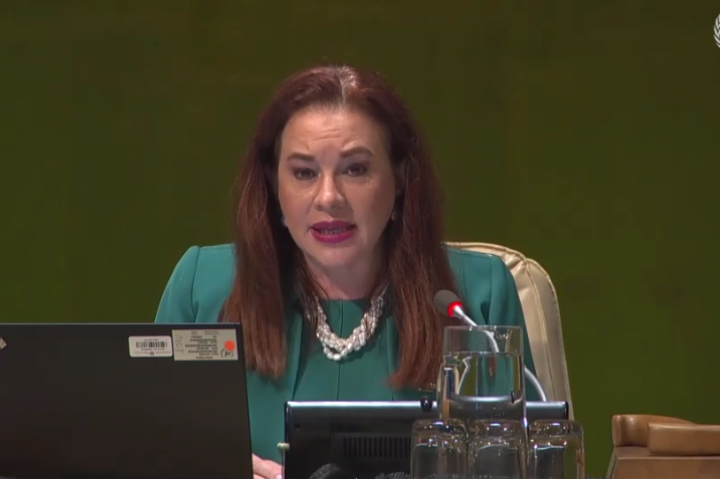
María Fernanda Espinosa Garcés, President of the 73rd Session President of the UN General Assembly, addresses the UNGA
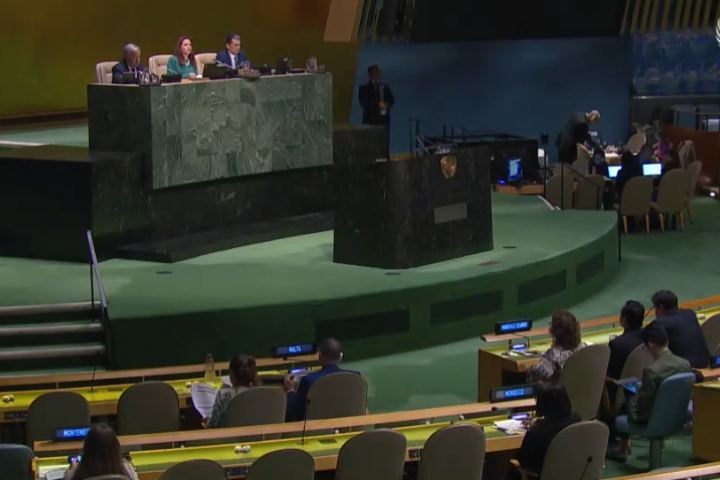
UNGA High-Level Meeting to observe the 10th anniversary of IDANT
